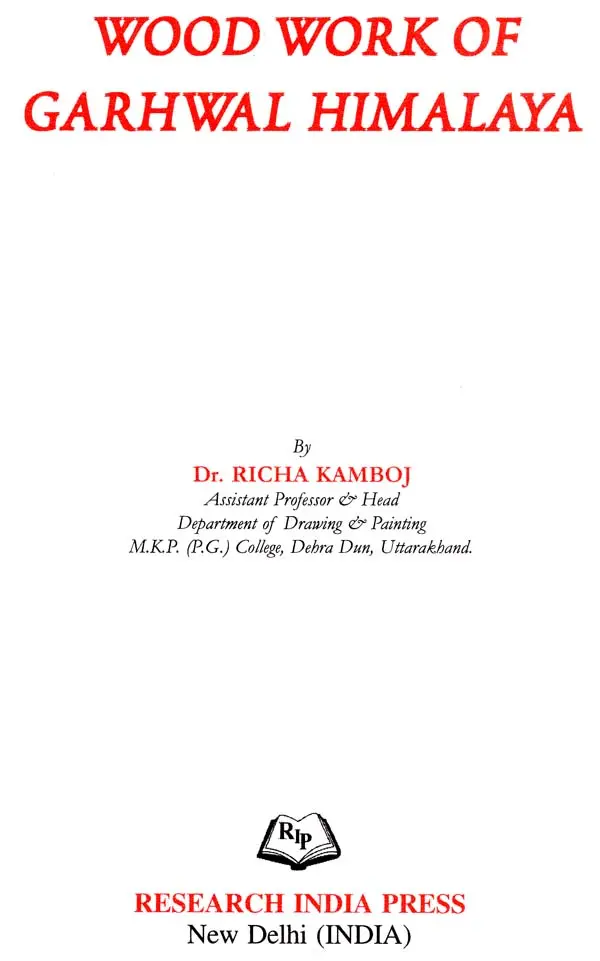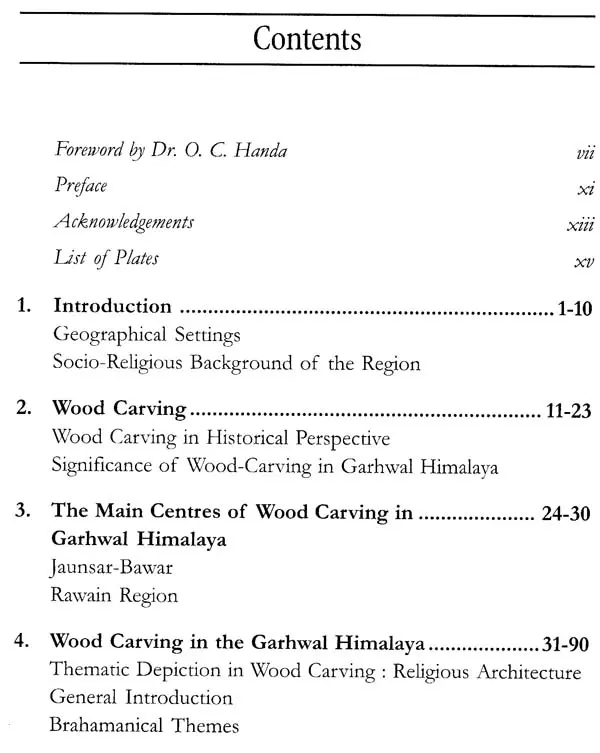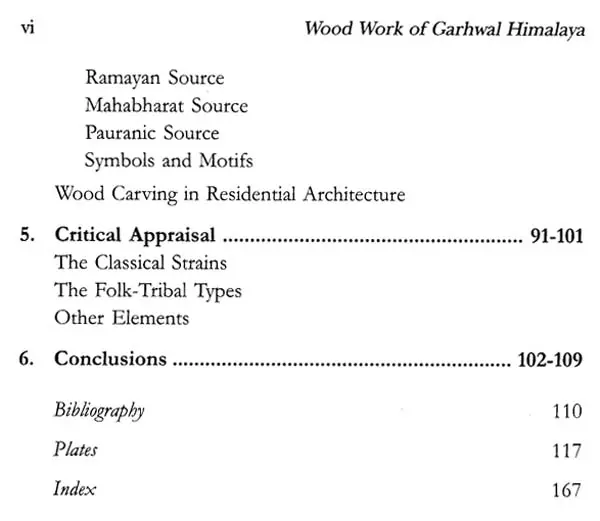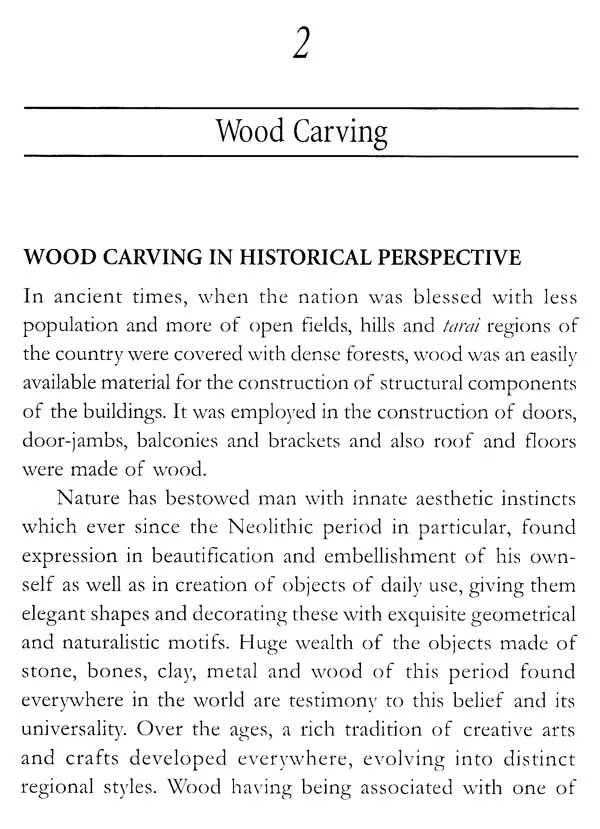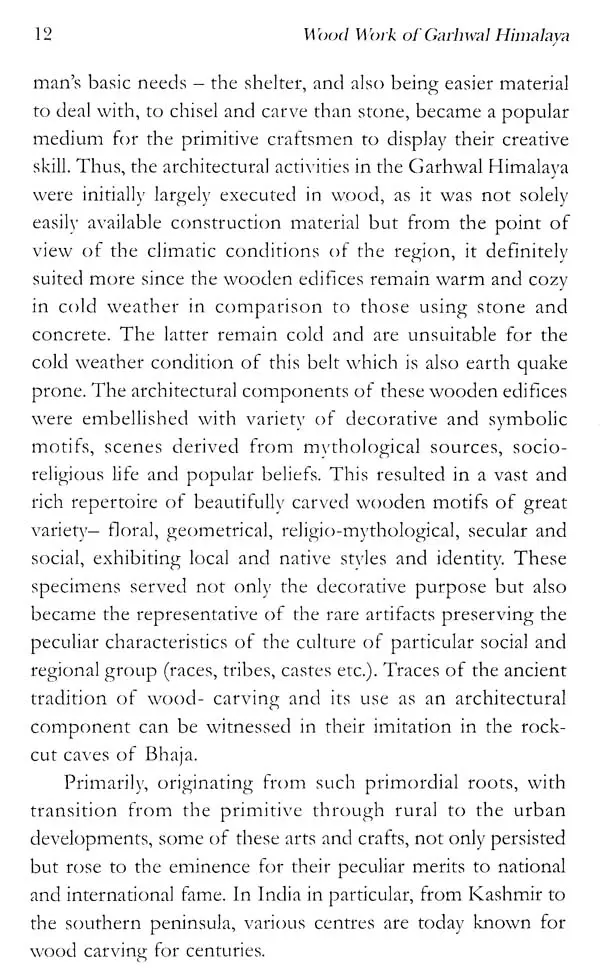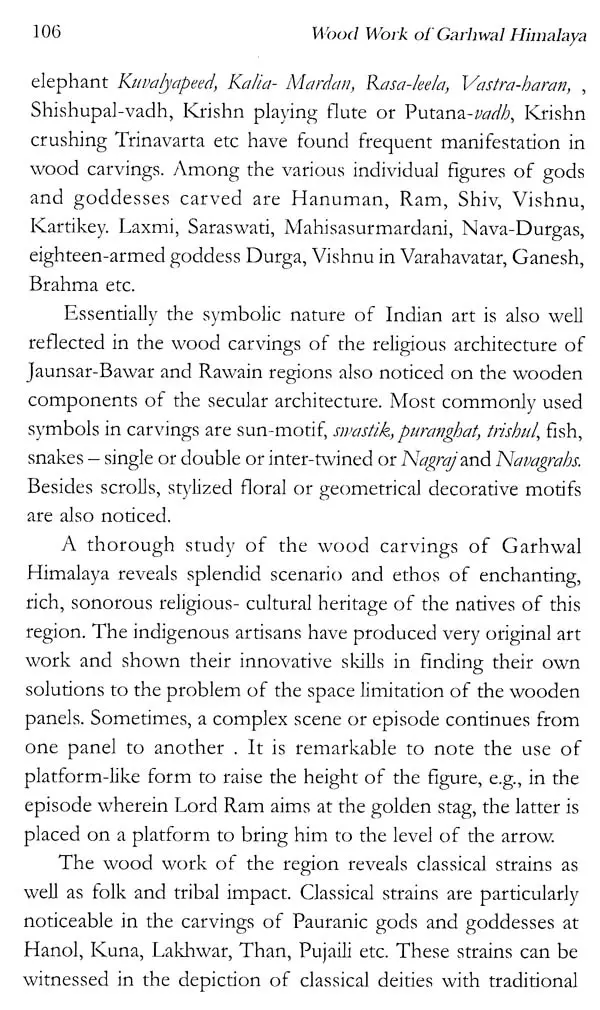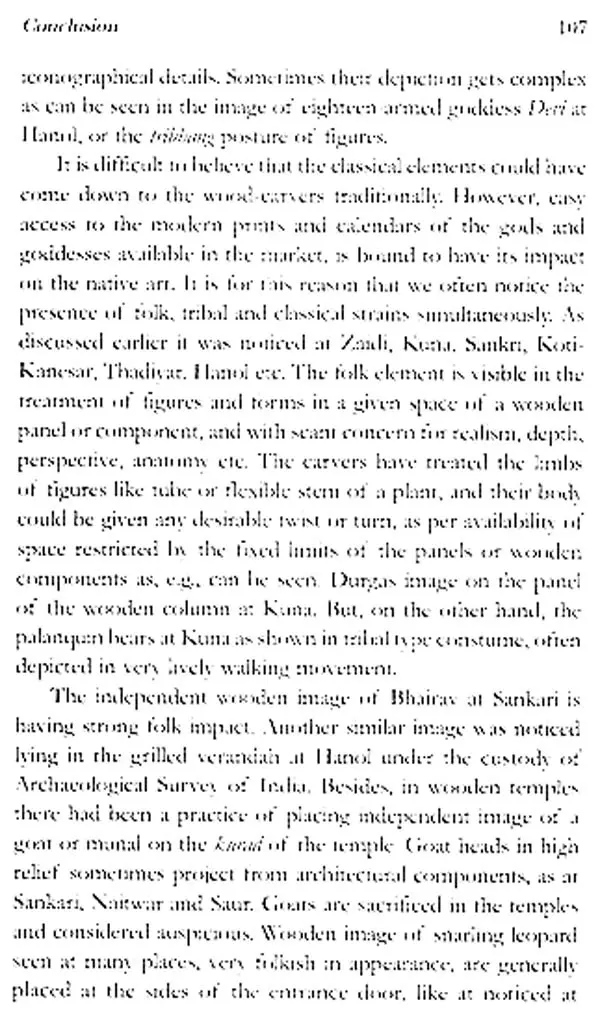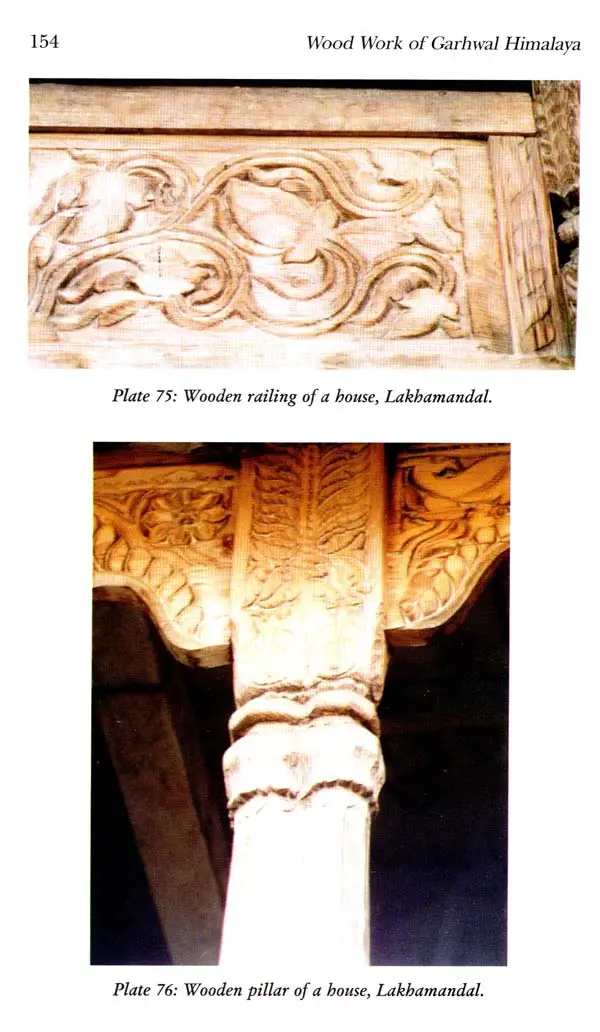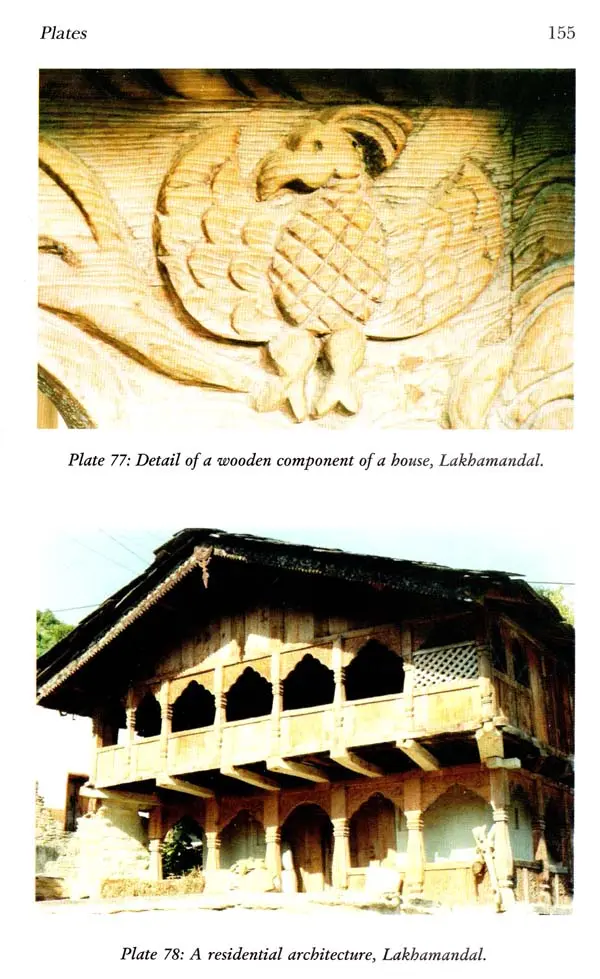
Wood Work of Garhwal Himalaya
Book Specification
| Item Code: | UAK292 |
| Author: | Richa Kamboj |
| Publisher: | Research India Press |
| Language: | English |
| Edition: | 2014 |
| ISBN: | 9789351710035 |
| Pages: | 171 (Throughout Colour Illustrations) |
| Cover: | HARDCOVER |
| Other Details | 8.50 X 5.50 inch |
| Weight | 420 gm |
Book Description
The present book Wood Work of Garhwal Himalaya by Dr. Richa Kamboj, is a thoroughly researched work covering exquisite wood work forming part of architectural components, found both in religious and residential architecture. The present volume showcases some very rare and yet unexposed wood work found at the remote sites located in the Garhwal Himalaya. The indigenous expression in the wooden components reflects styles with variation, themes and motifs rich in repertoire. The book deals with various socio-religio aspects associated with their evaluation and identification of the themes which were complex and yet undeciphered. The rich cultural heritage of wood work in the remote terrain of the Garhwal Himalayas is gradually vanishing in the wake of renovation and modernization and is being replaced by the cheaper building material. Thus, the author has made a significant contribution by documenting and bringing to lime light the rich cultural heritage of the Garhwal Himalayas found in the form of rare wood work forming segment of the architectural edifices and also by undertaking its analytical and critical analysis It will prove to be a treasure of aesthetic value and of art as wel as of historical significance for the posterity to come.
Dr. Richa Kamboj was born in Agra in 1971.She had a first class record all through her academic carrier. She did her graduation in Arts from Agra College, Agra, Post Graduation in History of Art from the prestigious National Museum institute, New Delhi and was awarded gold medal. She qualified NET (UGC) in Drawing and Painting. She was awarded the degree of Ph. D in 2004, by H.N.B. Garhwal University, Srinagar, Garhwal in Drawing & Painting on 'Wooden Temples of Uttarakhand, as a fellow of the ICHR, New Delhi. It was a rare privilege that four copies of her dissertation thesis for PG Course were selected for keeping in the libraries of the five premier art institutions in the country including the Victoria and Albert Museum. She has a publication to her credit, titled "Wooden Temples of Uttarakhand: A study of Art & Architecture. She has participated in many national and international level seminars and presented her research paper. Her articles have been published in many international and national research journals. She is a known artist to have participated in many exhibitions in India and abroad. She had the privilege of working under the internationally renowned artist Smt. Shobha Broota under scholarship scheme of the Govt. of India for 3 years. She has received many prestigious awards and honours for her works and for her achievements in the field of art. Her achievements in the field have been recognized by including her bibliographical notes in the national/Asia's Who's Who and the Directory of Indian Artist, LKA. She has successfully accomplished Minor Research Project awarded by UGC. Three candidates have been awarded the degree of Ph.D under her supervision. Dr. Richa Kamboj is working as Head of the Department, Drawing & Painting in M.K.P.(P.G.) College, Dehra Dun.
When Dr. Richa asked me to write a foreword for her book Woodwork of Garbual Himalay, the topic that has remained closest to my heart, I felt lost in the nostalgic memories of my adolescent years in the ancestral home. It was an old multi-storeyed building, in which several families lived together. We had old-fashioned sturdy and one-piece doors, with ornamental wooden bosses. The verandas had ribbed, carved and attenuated posts, with ornamental railings, balusters and the reasonably carved cusped arches. between them. We also had some large wooden storage boxes, the kothadas, firmly jointed without nails or screws, all made of the ageless deodar wood. I do not remember if those were ever displaced from their original position. Besides, we also had some artistically made woodenwares of day-to-day use. All those things of my formative yesteryears now live in my sombre reflections only. The winds of change have swept all those artistic relics of local workmanship away. That malady is not only confined to my home; in our times, it has taken an epidemic dimension in the western Himalayan interiors, and elsewhere too.
**Contents and Sample Pages**
